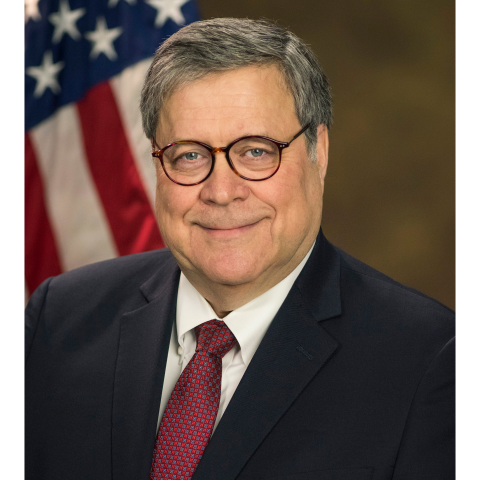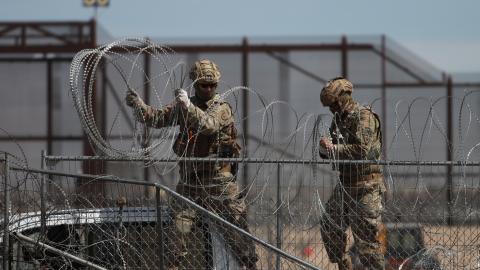Just weeks after the election, President-elect Trump announced that he would impose a 25% tariff on all Mexican products, and an additional 10% tariff on all Chinese products, until the flow of illegal narcotics from those countries is stopped. These measures will do more to choke off the growing scourge of illegal drugs than all steps taken in the "drug war" to date.
Over the past few years, the flow of illegal narcotics into our country has become a tsunami, with seizures of fentanyl pills skyrocketing from 4 million in 2020 to 115 million last year. The devastation inflicted on American society by this traffic is catastrophic.
The opioid crisis alone costs us over 100,000 overdose deaths and $1.5 trillion annually, while the flood of potent methamphetamine from Mexico fuels a new wave of meth addiction, ravaging lives, families and neighborhoods in its wake.
The Biden administration has facilitated this deadly traffic by weakening our border defenses and ignoring opportunities to choke off the supply chain for illicit drugs, now centered in China and Mexico.
Instead, it has focused on "harm reduction" inside the U.S. – deploying overdose medications, like Naxolone, and funding more treatment for addiction. While these steps are unobjectionable in themselves, they are an inadequate response to the flood of poison we are confronting. It is like addressing violent crime by offering more bandages.
Real progress requires eliminating the drug supply at its source. Here the U.S. has a golden opportunity because the supply chain for drugs poisoning America has become highly concentrated and vulnerable. It depends entirely on illegal activities in two countries – the manufacture of illicit drugs in Communist China, and drug processing and distribution operations in the cartels’ safe havens in Mexico.
All these illegal activities are carried out with – and indeed require – the connivance or willful blindness of the host governments. As Trump’s announced tariffs show, the U.S. has the tools and leverage to compel China and Mexico to shut down these operations. Doing this would strike a decisive blow: once these operations are dismantled, it would be impossible to replicate them elsewhere at anywhere near their current scale.
China has become the hub of illegal drug production because illegal narcotics are increasingly synthesized chemically, rather than made from grown plants. China offers the two prerequisites needed to supply the U.S. market: a large chemical industrial base, and a government willing to allow its factories to make illegal narcotics and their precursors on a large scale.
Chinese factories make the essential ingredients for virtually all the fentanyl and other synthetic opioids, as well as 80% of the methamphetamine, that come into the U.S., and are producing a new wave of drugs worse than fentanyl, like nitazenes and xylazines ("tranq"). Simply put, without China’s production, America’s drug problem would be mere fraction of what it is.
Communist China could easily stop this activity if it wanted to. But a recent report by the bipartisan Select Committee on the Chinese Communist Party (CCP) shows that China’s participation in the illegal drug trade is a deliberate policy.
According to the report, the Chinese government and the CCP has been granting tax subsidies to encourage their drug companies to produce and export – for consumption in the U.S. – fentanyl and other death-dealing drugs that are illegal in China, the U.S. and throughout the world.
This is an intolerable situation. The U.S. must compel China to stop producing these drugs by imposing an escalating series of consequences on those involved.
The initial tariff announced by Trump is a critical first step. If it doesn’t get results, further tools are available – imposing higher tariffs; targeting sanctions against the Chinese drug companies involved, and potentially indicting and seizing assets of those companies; sanctioning Chinese banks found to be involved in laundering drug money; and facilitating private lawsuits by fentanyl victims against Chinese companies making the drugs.
The second major chokepoint in the drug supply chain lies in Mexico. The Mexican cartels have become the "one-stop-shop" for processing and distributing nearly all the illegal drugs coming into the U.S. – the synthetic drugs made in China, as well as the cocaine from coca plants in Latin America.
Experience eliminating the Colombian Medellin and Cali cartels in the early 1990s shows that the U.S. can dismantle these organizations when it becomes directly involved, works jointly with the host governments and local forces, and uses all available national security and law enforcement tools.
But Mexico poses a particular challenge. Using bribery and terrorist tactics, the cartels have cowed and co-opted the government to the point that it is unwilling to confront them nor allow the U.S. to take effective action against them. And, even if the Mexican government was willing to tackle the cartels, their military and law enforcement is so rife with corruption they are incapable of effective action by themselves.
Our country cannot tolerate a failed narco-state on our border flooding America with poison. The only way forward is for the U.S. to use its massive economic leverage to compel the Mexican government to take a stand against the cartels. President Trump’s announced tariff does just this.
Because the Mexicans cannot do the job themselves, eliminating the cartels will require a joint campaign through which the U.S. engages in direct action against the cartels, using a range of our law enforcement, intelligence and military capabilities. The Mexican cartels are more like foreign terrorist groups, like ISIS, than they are the American mafia – and it is heartening that President Trump has signed an executive order designating them as such. It is time to confront them as national-security threats, not a law-enforcement matter.
Attacking the source of the problem overseas does not mean we should pull back from trying to dismantle trafficking operations inside the U.S. But progress abroad will produce exponentially greater results than anything we do at home. Trump’s tariff initiative shows, that, rather than dither with America's stubborn drug crisis and passing it on to his successor, Trump is willing to tackle it head on with decisive action.




















